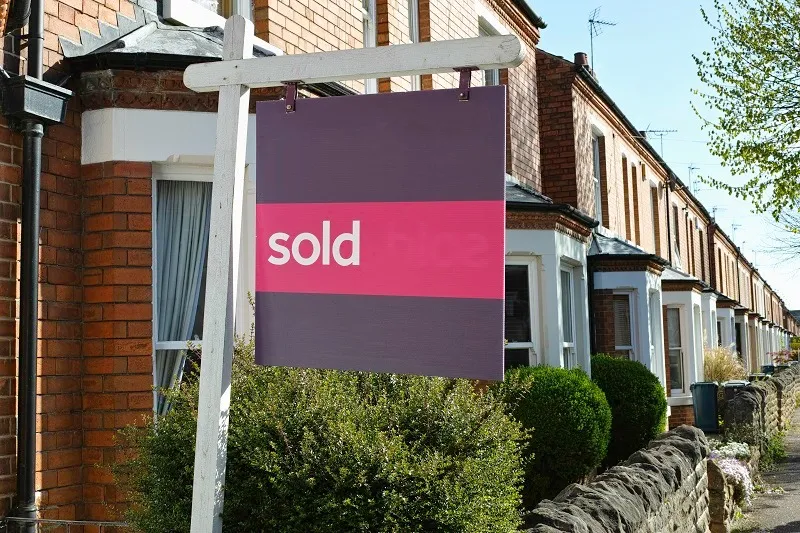Important: From 1 April 2025, the Stamp Duty threshold for first-time buyers was reduced to £300,000, with 5% payable on the portion between £300,000 and £500,000. Purchases over £500,000 no longer qualify for first-time buyer Stamp Duty relief.

Stamp Duty for First-Time Buyers
How does first-time buyer Stamp Duty work? Learn all you need to know here. We explain what Stamp Duty is, how much Stamp Duty first-time buyers pay, SDLT rates and more.
Speak to a mortgage adviser
Fill out this enquiry form and we’ll contact you to book a free call with one of our mortgage experts.
"*" indicates required fields
Contents
First-Time Buyer Stamp Duty
First-time buyers often have to trek through a blizzard of information about deposits, mortgage offers and all the extra costs associated with taking out a loan from a bank or building society to buy a house. In the mix of potentially conflicting advice, it’s important to hold onto one thing: being a first-time buyer can save you money.
Alongside mortgage products that are designed to give you a leg-up onto the property ladder, a key advantage to being a first-time buyer is that you’re likely to be eligible for Stamp Duty relief (Stamp Duty Land Tax or SDLT is a tax you pay when buying property in the UK).
Let’s take a look at the details of what Stamp Duty is and how you may be eligible to avoid paying it below.
Cut to the chase and use our First-Time Buyer Stamp Duty Calculator now.
What Is Stamp Duty?
Stamp Duty – officially known as Stamp Duty Land Tax (SDLT) – is a tax payable if you purchase property or land in England or Northern Ireland above a certain price – currently £125,000. In Scotland, Stamp Duty is known as Land and Buildings Transaction Tax. Meanwhile, it’s known as Land Transaction Tax in Wales.
Do First-Time Buyers Pay Stamp Duty?
First-time home buyers don’t pay any Stamp Duty on properties worth up to £300,000. They receive a relief known as the first-time buyer Stamp Duty exemption. They do pay Stamp Duty on properties above this amount though, but not for the whole value of the property. We break down how this relief works in the next section.
What First-Time Buyer Stamp Duty Relief Is There?
If you’re a first-time buyer, you qualify for relief also known as the first-time buyer Stamp Duty exemption. This is where you don’t pay SDLT for properties valued up to £300,000.
If your property costs more than this, you’ll pay 5% on the portion between £300,000 and £500,000. If the property is worth more than £500,000, there’s no Stamp Duty relief and you’ll pay at the standard rates.

How Much Is Stamp Duty for First-Time Buyers?
First-Time Buyer Stamp Duty Rates
|
Property Value |
FTB SDLT Rate from 1/4/2025 |
|---|---|
|
Up to £300,000 |
0% |
|
£300,001 – £500,000 |
5% |
Example
- You’re a first-time buyer purchasing a property for £500,000
- You would pay no Stamp Duty on the first £300,000
- You would pay 5% Stamp Duty on £200,000
- 5% of £200,000 = £10,000
- You pay a total of £10,000 in Stamp Duty
If the property is worth more than £500,000, there’s no first-time buyer Stamp Duty exemption and you’ll pay Stamp Duty at the standard rates.
What Are the Standard Stamp Duty Rates?
The standard Stamp Duty rates for residential property (for non-first-time buyers) are below.
Standard Stamp Duty Rates
|
Property Value |
Standard SDLT Rate from 1/4/2025 |
|---|---|
|
Up to £125,000 |
0% |
|
£125,001 – £250,000 |
2% |
|
£250,001 – £925,000 |
5% |
|
£925,001 – £1,500,000 |
10% |
|
From £1,500,001 |
12% |
You pay Stamp Duty to the HMRC via your solicitor/conveyancer within 14 days of completion of the property sale. You can calculate how much you’ll owe using our Stamp Duty calculator.
What Is First-Time Buyer Stamp Duty in Scotland?
If your first home is going to be in Scotland, you’ll be paying Land and Buildings Transaction Tax (LBTT) instead of Stamp Duty. There’s no LBTT paid on properties valued less than £175,000 for first-time buyers. The LBTT rates for first-time buyers in Scotland are as follows below.
First-Time Buyer LBTT Rates
|
Property Value |
LBTT Rate for FTBs 2025 |
|---|---|
|
Up to £175,000 |
0% |
|
£175,001 – £250,000 |
2% |
|
£250,001 – £325,000 |
5% |
|
£325,001 – £750,000 |
10% |
|
From £750,001 |
12% |
What Is First-Time Buyer Stamp Duty in Wales?
Unlike England, Northern Ireland and Scotland, there is no relief for first time buyers in Wales. You’ll be paying the same Land Transaction Tax (LTT) whether or not this is your first home. The threshold for paying LTT is £225,000, with the rates as follows below.
First-Time Buyer LTT Rates
|
Property Value |
LTT Rates 2025 |
|---|---|
|
Up to £225,000 |
0% |
|
£225,001 – £400,000 |
6% |
|
£400,001 – £750,000 |
7.5% |
|
£750,001 – £1,500,000 |
10% |
|
From £1,500,001 |
12% |
Who Is a First-Time Buyer?
A first-time buyer is generally defined as someone who has never owned any interest in a property before, whether purchased outright, inherited, or acquired through any other means.
This means that if you’ve ever been on the title deeds of a property, you won’t qualify for the first-time buyer Stamp Duty exemption.
Still not sure? Basically, you’re a first-time buyer and qualify for the Stamp Duty exemption if:
-
You have never owned a home: the primary criterion is that the individual has not previously owned a home or had a mortgage in their name
-
You are purchasing a primary residence: the property being purchased must be intended as the buyer’s primary residence, not as a rental or investment property
It’s worth noting that if you haven’t owned a property for a certain period of time – e.g. 3 – 5 years – some lenders may be able to offer you first-time buyer mortgage rates or incentives, even though you aren’t technically a first-time buyer. You won’t however qualify for the first-time buyer Stamp Duty relief.
Find out more about what makes a first-time buyer and a more detailed answer to question: can I be a first-time buyer again? on our site.
Which Mortgages Allow You to Claim First-Time Buyer Stamp Duty Exemption?
If you meet the definition of a first-time buyer, you still need to be aware of the eligibility criteria that are associated with different first-time buyer mortgage deals. It’s worth reading up on these, as some criteria may still prevent you from accessing Stamp Duty relief.
- Joint mortgage –if you’re planning on taking out a joint mortgage, you can still be eligible for Stamp Duty relief. However, both of you will have to meet the definition of a first-time buyer
- Joint borrower sole proprietor– you can claim the first-time buyer Stamp Duty exemption if you take out a joint borrower sole proprietor mortgage with a previous homeowner but it’s only you as the first-time buyer who’s on the title deeds
- Shared ownership– you only need to pay Stamp Duty on the share of the property you’re buying. If the portion of the property you own is valued below the Stamp Duty threshold for first-time buyers in your region, you won’t need to pay
- Gifted deposit mortgage – if you’re receiving a gifted deposit and the person offering the gift doesn’t share in the ownership of the property, you’re still eligible for Stamp Duty relief

How Can They Know Whether I Am a First-Time Buyer?
You must declare that you’re a first-time buyer during the house purchase process. Your conveyancer or solicitor will ask you to complete a first-time buyer declaration form. You’re not considered a first-time buyer until you submit this form.
This declaration form is a legal document so it’s critically important that you’re honest and transparent on this form and throughout the entire house purchase and mortgage processes.
Can I Be a First-Time Buyer if I Inherited Property?
If you are, or have been listed as an owner or part owner on the title deeds of a residential property or land – whether this property was inherited from a deceased relative or through marriage or civil partnership – you cannot declare yourself to be a first-time buyer. The same applies if you were previously gifted a house. The only exception is if you inherited non-residential property or a mixed-use property that did not include a dwelling.
For any advice, or if you’re not sure whether you qualify as a first-time buyer, speak to your solicitor.
They will help you make the necessary declaration and advise on the best mortgage agreement that suits your needs. The benefits of Stamp Duty relief are incredibly important in helping first-time buyers onto the property ladder and into their dream house.
Get in touch with our experts
Book an appointment with an adviser today and we’ll help you work out which mortgage deal is best for you and your requirements.
